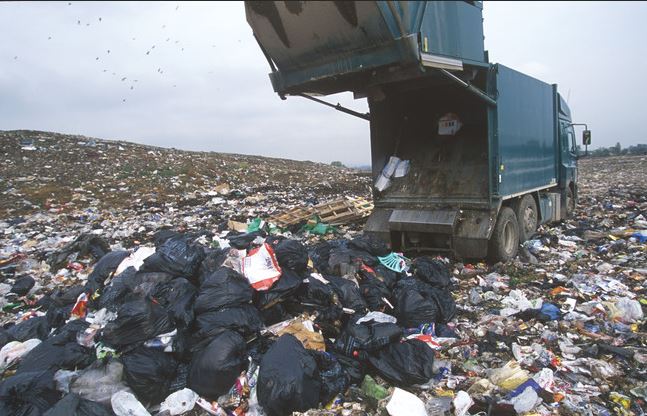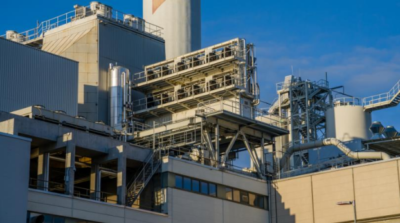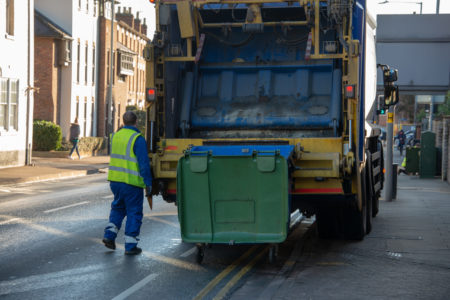In a report on local government and the path to net zero, the cross-party Housing, Communities and Local Government Committee said collaboration was needed in areas such as housing and planning, low-carbon heating, and energy efficiency.
However, local authorities’ potential contribution to net zero extends “well beyond” buildings, heating and transport, the report says. It suggests councils can reduce emissions from waste by using their responsibilities for collection and disposal to push waste up the waste hierarchy and by connecting more energy from waste (EfW) facilities to district heat networks.
Clive Betts, Labour MP for Sheffield East and the committee’s chair, said: “The government must learn the lessons of past failed nationally delivered ‘green’ schemes. Schemes should be delivered in partnership with local councils who are trusted by their communities and who can provide the organisation, advice and promotion which will be vital in raising people’s understanding about the changes taking place.
Schemes should be delivered in partnership with local councils who are trusted by their communities
– Clive Betts, chair of the Housing, Communities and Local Government Committee
“Local councils have a crucial role to play in ensuring there is a just transition and winning public trust for the changes needed on the path to net zero.”
Emissions from waste mainly comprise methane released from landfill sites when biodegradable waste – particularly food, paper, and card – decomposes, the committee’s report suggests. It cites figures from the Climate Change Committee stating that waste was responsible for 4% of the UK’s emissions in 2019.
Waste
In particular, local authorities of all tiers can influence emissions by helping to move waste up the hierarchy, the report says, according to which waste management should prioritise first prevention, then reuse, followed by recycling, and finally recovery. Only where none of those is possible should waste go to landfill or be incinerated other than for EfW, the report says.

On the provisions in the Environment Bill mandating the collection of certain materials for recycling, the Local Government Association (LGA) told the committee that councils were “ready to play their part in consistent household collections”, but that the government must “make good” on its promise to fund the new duty fully through the new burdens process.
The LGA also asked that councils be “allowed to determine locally how waste is collected, taking into account the local geography and access to infrastructure for sorting and recycling”. It added that “further investment in the capacity of the UK’s recycling infrastructure” would be essential if the government was to “achieve its ambition on increasing recycling rates”.
Local authorities can also help to reduce waste by encouraging people to reuse more, the report says.
EfW
The emissions released during EfW are offset by the energy extracted, the committee’s report claims.

It says the government is keen to ensure more EfW plants work with councils to take advantage of the waste heat produced during incineration to supply district heat networks. Currently, most EfWs only generate electricity, the report claims.
The committee notes that its predecessors acknowledged that there were concerns about the environmental impacts of incineration, even EfW, and about a possible link to lower recycling rates. However, the previous committee concluded that, while the “prevention of waste and recycling should always be the highest priority… incineration does have a role to play within the Waste Hierarchy”.
Net zero
The report recommends the government begins working with local government immediately on a net zero delivery framework which sets out the roles and responsibilities of local and central government.
On funding, the report notes that the Net Zero strategy, published last week, includes “no clear commitment” to increasing the level of long-term funding specifically for local authority climate action (see letsrecycle.com story). The report recommends the government come forward with a long-term funding plan for local authority climate action.
‘Absolutely crucial’
Responding to the report, Cllr Darren Rodwell, the LGA’s environment spokesperson, said: “Councils understand the urgent need to tackle climate change and have been making active changes in their communities to benefit the environment.
It is absolutely crucial that councils are at the forefront of the national response to climate change
– Cllr Darren Rodwell, LGA environment spokesperson
“It is absolutely crucial that councils are at the forefront of the national response to climate change, and we need the government to work in partnership with local authorities to continue shaping local areas and help to achieve net zero carbon emissions by 2050 or sooner.”
Related link
Local government and the path to net zero












Subscribe for free